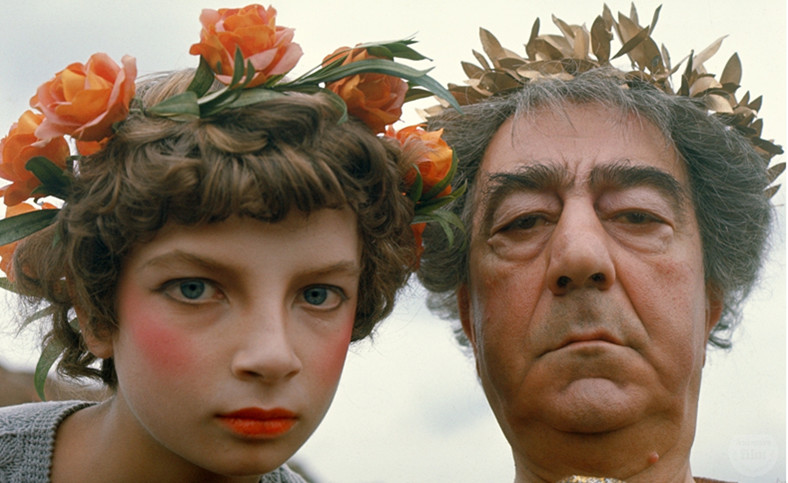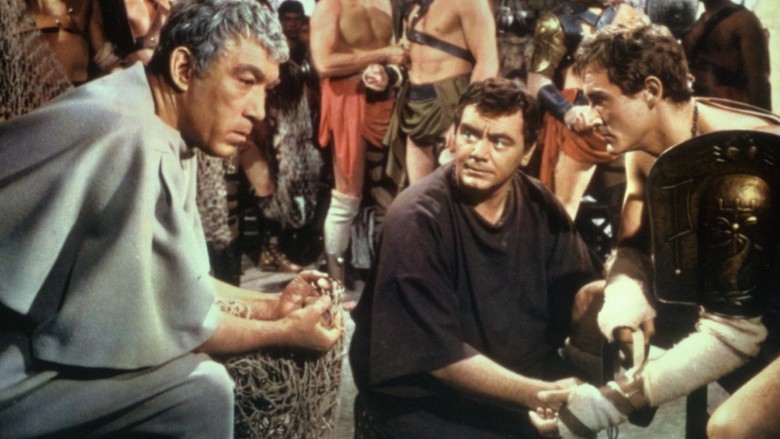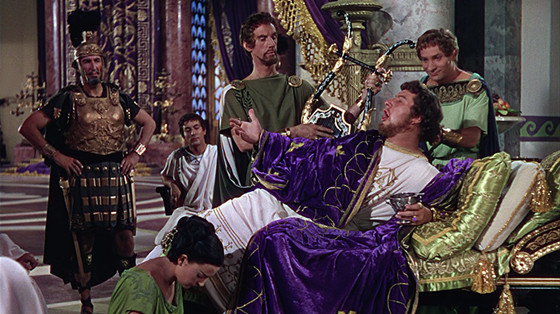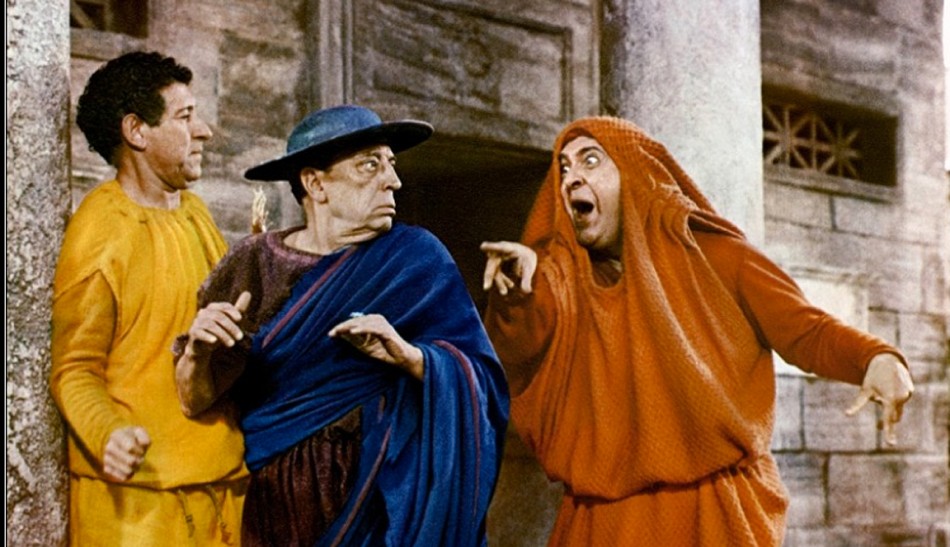Ancient Rome is one of the most talked about eras of history, being featured and referenced in countless sources of popular culture. The range of “Ancient Rome” is not an exactly definite timespan, but it mainly focuses on the Roman Empire, starting around 50 BC and spanning the next couple hundred years.
Although, there have been brilliant films set in contemporary Rome, the culture of ancient Rome is completely different, and with the exception of a few popular landmarks, the setting is unlike any other in history. Ranging from the exquisite architecture and the lavish clothing of the nobility to the rags and markets of the peasants, ancient Rome was a very diverse and fascinating environment.
The majority of the stories in these films focus on a very small portion of Roman History: the reign of the Julio-Claudian line. This starts after Julius Caesar’s death and runs until his last heir, Nero, kills himself, only 50 years later. One of the reasons for this is due to the massive amount of turmoil during this time, with each emperor dealing with many conspirators as well as outside enemies.
This period also had some of the most interesting rulers, such as the righteous Augustus and the crazed Caligula. It is important to note that many movies about the story of Jesus Christ are also set during this time and relative location, but due to their lack of focus on Rome itself, will not be featured in this list.
10. Barabbas (Richard Fleischer, 1961)
This is a story about Christ and christianity mixed with gladiatorial battles told from the perspective of a non-believer. Anthony Quinn stars as Barabbas, the biblical character who Pontius Pilate set free instead of Jesus Christ. It follows his exploits following his release and Jesus’s death when Barabbas becomes enslaved and then turns into a gladiator where he gains the favor of the public and the Emperor Nero, eventually leading to his freedom again.
Unfortunately, soon after he is a newly freed man, Rome burns to the ground and the Christians, who are suspected for the fire, are rounded up and executed and Barabbas is with them. As he dies on the cross, Barabbas finally comes to terms with his spirituality and confirms his Christianity.
Barabbas incorporates many similar historical events as many other films on this list, such as the Roman reaction to christianity, slaves-turned gladiators and the early emperors. Like the book by Par Lagerkvist that it is based on, Barabbas also covers new ground, telling the story of a morally questionable citizen who is despised by all the followers of Christ but still manages to be a likable protagonist.
The film explores a multitude of difficult thematic and philosophical arguments, as well as produce a costume drama with similarly excellent value as the other epics of the time. Led by Quinn’s strong performance and carried with breathtaking visuals, Barabbas is an underrated classic of the historical drama genre.
9. Titus (1999, Julie Taymor)
The first ever major film adaptation of Shakespeare’s first and, by almost unanimous critical reception, worst tragedy, Titus is one of the weirdest historical dramas ever made. This is due to the fact that director and writer Julie Taymor chooses to venture ludicrously far from what is historically accurate for the time, or even millennium for that matter.
While it may seem strange to include such a fantastical film in this list, there are many important aspects of the film that reflect what ancient Rome was like, notably the bloodthirsty, merciless fights for power that actually happened for control of the civilization. The significant changes from historical fact may have been one of its biggest detractors for critics, but these details also were some of the most important contributors to the film’s dynamic stylization.
The strongest aspect of this film by far are the performances by some of the greatest Shakespearean actors of our time. Anthony Hopkins shines as the central General Titus who has been double crossed and outcast. With his son Lucius, he hatches a plan against his slimy nephew Saturnius, played by Alan Cumming, and his ex-wife Tamora of the Goths, played by Jessica Lange.
This brutal revenge flick is a bloody back-and-forth between Titus and his enemies, both sides committing despicable acts in order to gain power over the other. Although the plot seems a bit dark and immature for Shakespeare, the film has many very powerful moments and is worth the lengthy runtime if you stomach the grisly violence.
8. Quo Vadis (1951, Mervyn Leroy)
In the 40s and 50s, many companies fronted large scale productions of historical epics, often over inflated and misguided. Not only was Quo Vadis was one of the biggest of these productions but it was also much a more polished and engaging film. It was a huge commercial and critical success, grossing the most of any film that year and being nominated for 8 Academy Awards. The film is set in ancient Rome during the end of the Julio-Claudian empire under the reign of Nero.
The main plot follows Robert Taylor as a general who falls in love with a Christian captive, played by Deborah Kerr, causing a conflict in his ideologies. The background plot revolving around Nero, played by Peter Ustinov, also involves this theme of Christianity as Nero grows increasingly insane trying to blame all of his problems on the religion. When the two main characters cross Nero, a revolution starts with the intent of overthrowing the emperor’s control.
While Taylor and Kerr are the main actors, Ustinov attracts the most attention as the conceited and brutal ruler of Roman empire who makes his subjects refer to him as “his divinity”. Rivaling Ustinov as the highlight of the film, the in depth production value and huge sets are some of the most awe inspiring of the time. Unfortunately, as with many other films on this list, many of the exact historical facts are embellished, but the atmosphere of Nero’s reign accurately reflects his persona and actions.
While the over-dramatized style of historical epics like Quo Vadis have not aged as well as some other films of that era,particularly the melodramatic elements, the films great visual style and Ustinov’s brilliant portrayal separate it above the pack of similarly themed films made in that time.
7. A Funny Thing Happened on the Way to the Forum (Richard Lester, 1966)
This film version of Stephen Sondheim’s musical of the same name is based on the farcical plays by the Roman writer Plautus. Comedian Zero Mostel plays the central character Pseudolus, a scummy slave who will do whatever it takes to earn his freedom. He makes a deal with his owner, Hero, who has fallen in love with a prostitute in the brothel next door, owned by Marcus Lycus, played by the hysterical Phil SIlvers.
If Pseudolus can get the girl for Hero, he will get his freedom, When he goes to buy the girl, he discovers that she has already been promised to a famous Roman soldier so Plautius cooks up a plan to trick everyone, but everything goes awry leading up to a hilariously catastrophic climax. Buster Keaton also stars in his last screen role as a grumpy neighbor of Pseudolus.
While A Funny Thing Happened on the Way to the Forum is the only comedy on this list, it is also one of the most honest portrayals of the life of average citizens in ancient Rome, not shying away from some of the undesirable aspects of living at the time.
Another important element of the film is its debaucherous and juvenile style of humor, which was the common form of humor back then and very similar to Plautus’s actual plays. It mixes the archaic jokes with the comedy of its talented stars to create a informative, but relatively accurate, ancient Roman story that the actual citizens of Rome might have watched for fun.
6. Julius Caesar (Joseph L. Mankiewicz)
The second adaption of a Shakespeare work is not only a more polished film but has the advantage of simply being based on a greater play. The play, itself derived from Plutarch’s “Lives,” follows not Julius Caesar a the main character, but rather his friend and infamous betrayer Marcus Brutus.The film, influenced by star power, shifts the focus slightly to feature Brutus, played by the great James Mason, as secondary to the character of Marc Anthony, played by Marlon Brando, who had recently rose to popularity with A Streetcar Named Desire. This led to an on-set dispute between Mason and Brando but fortunately did not get in the way of their terrific performances.
The overarching plot of the story follows the conspirators against Caesar as they try to win over his supporters like Brutus and kill the would-be king for the good of Rome. Brutus, while wanting to remain loyal to his friend and unable to find any wrongdoings by Caesar, eventually turns also, thinking it safer take him out before he gets enough power to really do harm. On the Ides of March, the conspirators strike, stabbing Caesar many times with Brutus doing so last leading to the immortal line “Et tu, Brute?.”
When the guard comes, the conspirators try to appeal to the Roman public with a logical explanation of their fears but Caesar’s loyal friend, Marc Anthony, makes a more affecting speech, rousing the mob to take the betrayers away and meet their fate. An acting powerhouse with a classic, dramatic story, Julius Caesar is the defining film of that famous moment in ancient history.





